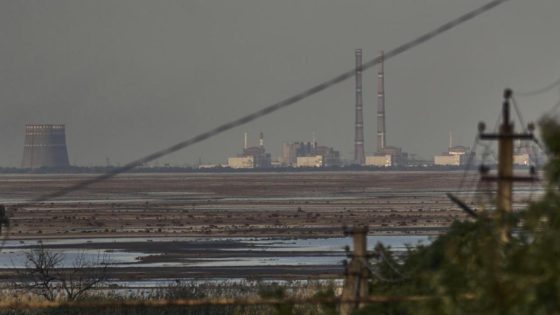Clearwater leaders are no longer hiding their impatience as blocks of downtown properties tied to the Church of Scientology remain empty, despite years of closed-door talks.
With a majority of new members, the City Council began discussing government priorities with city administrators at a retreat Tuesday and aired plans for awakening downtown with or without Scientology’s help.
“I feel like we’re begging for collaboration, for cooperation, for open dialogue with our downtown partners and I feel like we don’t necessarily get the result that we’re hoping for,” said Mike Mannino, one of three council members elected in March.
The city is already in talks with Pinellas County government to redevelop up to 14 county buildings into uses like retail and housing, a prospect they said could help counter Scientology’s dominance in downtown. But for the first time publicly, city officials talked about their desire to see Scientology convert some of its street-level religious offices into spaces the public can use too.
“I like the idea of being much more transparent going forward,” Assistant City Manager Michael Delk told officials gathered at the Morningside Recreation Complex. “I think sometimes it almost feels like we’re in this cloak-and-dagger experience with Scientology, and I think that’s a bad place to be, frankly.”
Over the last 2½ years, multiple city officials have spoken with Scientology representatives in private meetings and phone calls about land swaps or other proposals to activate buildings, but no deal has materialized.
“When it comes to negotiating, it takes two sides to want to work out terms, and I just don’t think there’s any interest right now (from the church) in negotiating,” said Mayor Bruce Rector, also elected in March.
Companies tied to the church began buying real estate in 2017, and they haven’t stopped.
In April, they bought some of the last properties in the downtown core that weren’t tied to the church, including the tower that houses city offices.
Clearwater, meanwhile, spent $84 million to renovate Coachman Park last year with a concert venue, waterfront promenade, green space and more that has drawn thousands for concerts and events.
And earlier this year, the council finalized a deal for developers to build an apartment tower and hotel on two parcels surrounding the park.
Beyond the waterfront, however, block after block of properties controlled by Scientologists are filled with empty storefronts and vacant lots, leaving visitors with few things to do or places to eat after leaving Coachman Park.
But the chance to redevelop a large portion of downtown through the county properties is unfolding as Pinellas officials plan to relocate their operations out of downtown to a site on U.S. 19 within about five years.
At the retreat, Delk said reusing government buildings for things like retail, restaurants and housing is crucial to “deinstitutionalize some of our key urban corridors.” He said Scientology should follow suit.
Separately from the 200-plus, mostly vacant properties controlled by church-connected companies, Scientology owns about 50 parcels downtown that make up its international spiritual headquarters, first established in 1975. Delk said Scientology should collaborate by moving some of its ground-floor religious spaces at the prime intersection of Cleveland Street and Fort Harrison Avenue to other parts of its campus.
“The county wants to use their properties to activate the public streets. They want to use them to create a better downtown, and I think our other large institutional user down here, Scientology, needs to hear the same message,” Delk told the council.
The stretch of Fort Harrison Avenue between Drew and Cleveland streets, for example, is filled with rows of religious offices that are “very nice and attractive buildings,” Delk said, but “sterile — there’s no public life on the streets and sidewalks.”
In a later interview, Delk envisioned the possibilities for that Fort Harrison strip: lights strung across buildings with sidewalk cafes, white-tablecloth restaurants and visitors bustling on the corridor like St. Petersburg’s Central Avenue or Beach Drive.
“What it would require is relocating the institutional space to other areas where (pedestrians are) not as critical to downtown,” Delk said. “If you want to join us on a mission to create a better downtown, here’s how we can collaborate. We should collaborate on principle. And I think the city should stand on principle about active urban streets.”
Delk said his words at Tuesday’s retreat were the most candid discussions he’s had in public about Scientology during his 20-year tenure with the city. Council members asked for more of that.
“I think we ought to be talking about this publicly on the dais as a regular talk,” council member David Allbritton responded.
The retreat came as the latest round of private discussions between City Manager Jennifer Poirrier and Scientology officials appear to have hit a wall. Her talks, primarily with church legal director Sarah Heller, have involved the future of vacant properties controlled by the church.
Poirrier declined to disclose the requests she has made of the church, citing the ongoing dialogue. But she said in an interview that “we have different ideas in terms of what could help activate downtown.”
“The ball is in their court,” Poirrier said of Scientology. “They’ve certainly heard from the city. To do anything else, I need to hear back from them in terms of how we move forward.”
If talks materialize into more formal negotiations for what each side could get in a deal, Poirrier said she’ll bring a proposal to the council for a discussion.
“We certainly haven’t achieved that yet but I’m not going to give up hope that we can,” she said.
Poirrier noted that so far she has not asked the church to relocate ground-floor religious uses as Delk described.
Scientology spokesperson Ben Shaw declined to answer why most of the 200 commercial properties bought since 2017 by companies tied to the church are sitting vacant. He declined to answer whether the church would consider relocating some of its ground-floor religious spaces off main corridors.
He said Scientology and the city are in full agreement to “create an active and vibrant downtown” but that the most recent talks with Poirrier have been preliminary as a new City Council just took office.
Poirrier has been leading discussions with church officials since she was appointed in January 2023. Her predecessor, Jon Jennings, spoke regularly throughout 2022 with Scientology leader David Miscavige about a potential deal that never came through.
Shaw said that, for almost a decade, the church has worked on responding to recommendations from city consultants, who in 2014 said Clearwater and the church must work together to change downtown. But he declined to share details about the church’s plan.
“Beyond that, and since a city/church partnership has not been finalized, it would be premature to say anything else,” Shaw said.
But during the retreat, Mannino, the new council member, underscored the city’s frustration at the lack of progress.
“Are we at a point where we need to start bringing the public along with us to have these discussions in the sunshine so that we are all on the same page?” he asked. “Supposedly we all want the same thing, right? We want a vibrant, alive downtown. … So, if we want the same things, where’s the disconnect?”
Rector, the mayor, met with Miscavige on April 11, a month after he was elected, but said they did not talk about the downtown properties or any of the discussions being led by Poirrier. The sit-down, he said, was more of an introduction.
At the retreat, Rector noted that “there’s communication going on all the time” between city staff and church officials. But with the lack of movement, he’s not sure a deal can be had.
The mayor said the city should focus on strengthening events in Coachman Park, ensuring the bluff apartment and hotel projects advance and pursuing the enormous opportunity the city has with redeveloping the county government properties.
“If we do those three things, now anybody surrounding that area, you begin to look like you’re being left behind,” Rector said. “Because now, wow, you’ve got your vacant properties right next to this fantastic development.”
In an interview, council member Lina Teixeira said she has conveyed to Poirrier that she wants to see the church’s long-term plans for all of the property it controls. “And I have not received that,” Teixeira said.
Allbritton said in an interview that his request of Scientology through Poirrier is to see that empty storefronts controlled by the church — especially on Cleveland Street — are rented to businesses.
The lack of action from Scientology, he added, is baffling considering the city’s efforts toward revitalization.
“It’s a question of when to me,” Allbritton said. “Our timetable is right now. Theirs is I don’t know.”
Source Agencies



